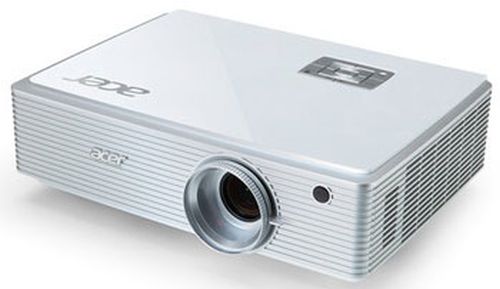Pixelworks Launches SoC for Next-Gen LED, 3D Projectors
Pixelworks has said it has begun shipping a new SoC that is targeting next-generation, mainstream LCD or DLP projectors for the education, business and home theater segments.
The Topaz SoC supports 1080p and WUXGA (1920 x1200) resolutions as well as standard and non-standard 3D content, including 3D format decoding with a universal 3D glasses interface.
The SoC also comes with a video decoder that supports 8/10 bit analog inputs or HDMI/DVI digital inputs (HDMI 1.3, 1.4 3D), a USB 2.0 host controller, Ethernet MAC, an on-screen display menu controller and an ARM9 processor to enable projector vendors to use customized applications.
"Current projector technology is undergoing a significant transition as more diverse and sophisticated applications become available, creating expanded opportunities for our newest family of products," said Pixelworks senior vice president Graham Loveridge in a prepared statement.
"The evolution in illumination engines and light source technology is migrating from traditional lamp-based light sources to LED and laser technologies, which will enable a lower cost of ownership as well as more compact and portable designs."
Pixelworks did not reveal any products that may include its new SoC.
Get Tom's Hardware's best news and in-depth reviews, straight to your inbox.

Douglas Perry was a freelance writer for Tom's Hardware covering semiconductors, storage technology, quantum computing, and processor power delivery. He has authored several books and is currently an editor for The Oregonian/OregonLive.
-
waxdart master_chenJust take my money already.And make a 2538\00d71080 - 2.35:1 projector and take mine too.Reply -
annymmo Replyto LED and laser technologies
That's where we need to go with projectors. Increase efficiency and decrease wasted heat.
More efficiency improvements coming up:
-
drwho1 "The evolution in illumination engines and light source technology is migrating from traditional lamp-based light sources to LED and laser technologies, which will enable a lower cost of ownership as well as more compact and portable designs."Reply
Right...
But at what cost?
-
freggo Bit light on content/facts and not even a hint of the price range.Reply
Just wasted 60 seconds of my life :-)
-
CaedenV drwho1"The evolution in illumination engines and light source technology is migrating from traditional lamp-based light sources to LED and laser technologies, which will enable a lower cost of ownership as well as more compact and portable designs."Right...But at what cost?They have a higher up-front cost, but then the lamps typically will never need to be replaced, or else only replaced once over the life of the projector. From what I have read (I have yet to play with one yet) they give off better image quality, use much less power, and the break-even point on cost for a 6hr day (like a classroom) is ~2-3 years after you figure in the costs of bulbs. And that is only considering the cost of bulbs and power... it is stupidly expensive to get a janitor to break out a ladder and change a lightbulb.Reply -
marcusgarvey I mean that is sexy but i'm really curious how they are going to argue that 3d is necessary as a features in a classroom setting. That is just going to increase mark-up. Besides enterprise I don't see how this is going to fly in the consumer market. It is going to be a high cost with a useless 3d features whereas your AAXA's Optomas and 3M's are going to market their mini projectors at a much more consumer friendly price. Let's hope Pixelworks doesnt fudge up the marketingReply
